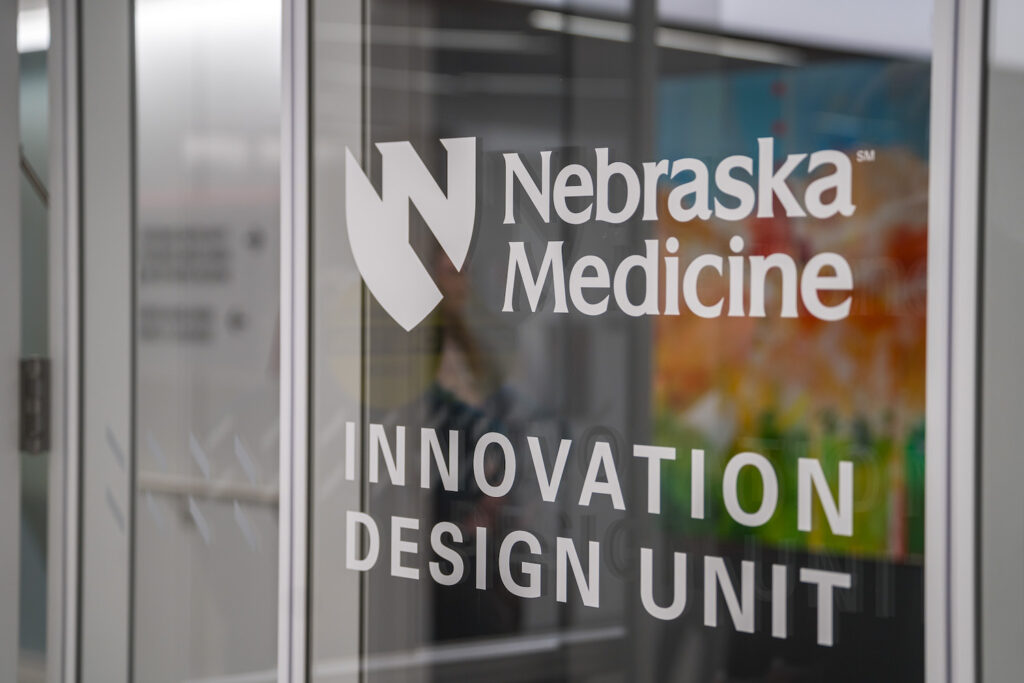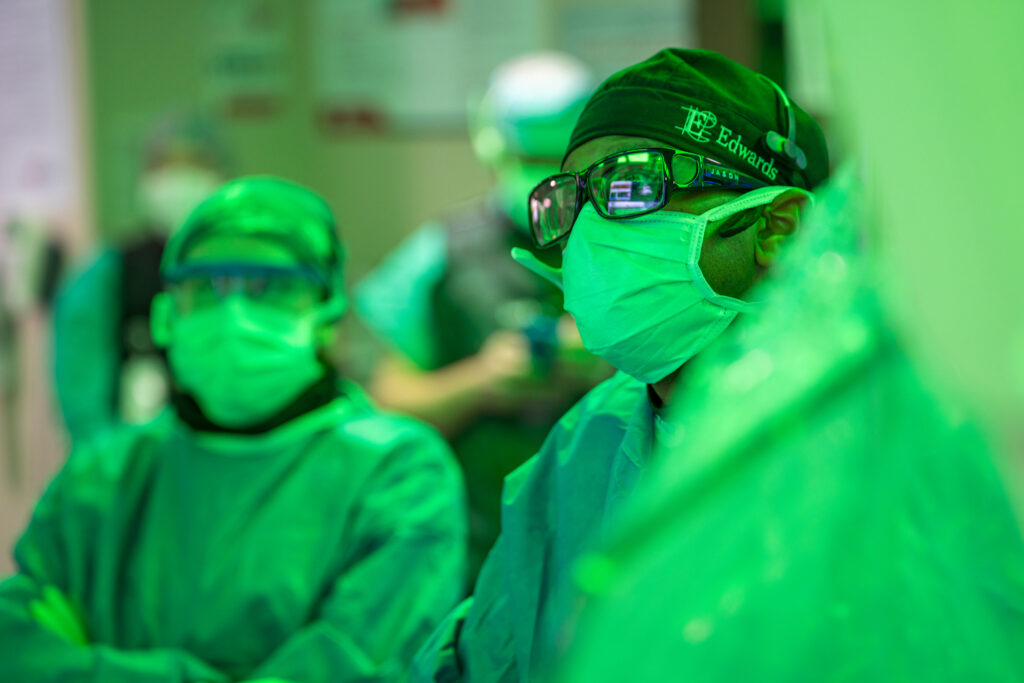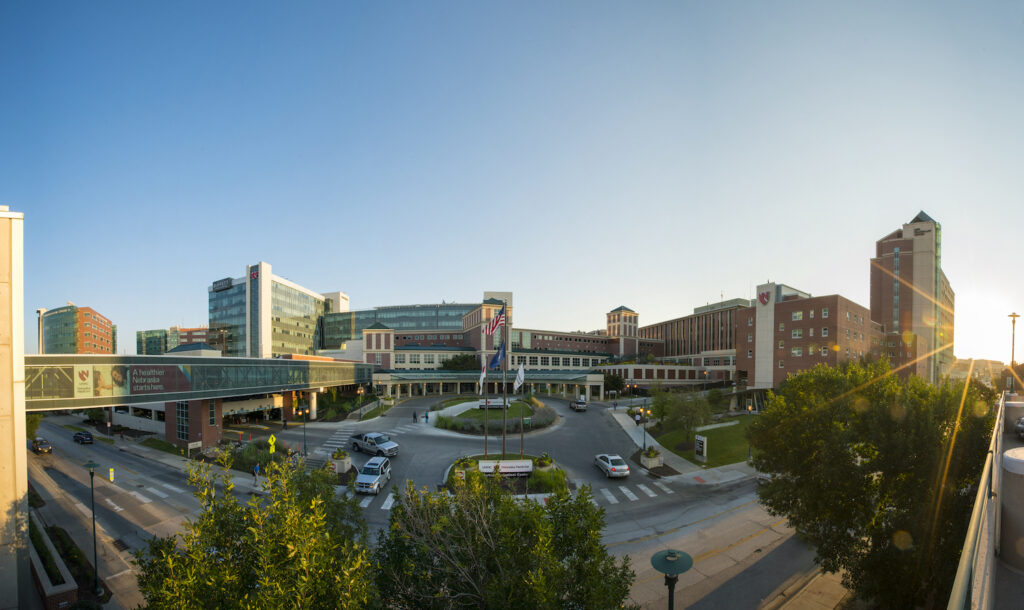Innovation and Growth: Nebraska Medicine is a Global Health Care Leader Here in Omaha
Nebraska Medicine isn’t simply a local institution. It’s a world-class academic medical center attracting patients for complex treatments including cancer care and organ transplantation.
“Patients from around the world come to the med center seeking treatment,” said James Linder, CEO and board chair of Nebraska Medicine.
And things are only getting bigger.
This year will be a landmark year for growth. Alongside its academic partner, the University of Nebraska Medical Center, the University will break ground on Project Health, a new teaching hospital. A new primary care health center is set to open in Bennington, and last month, Nebraska Medicine opened the Innovation Design Unit, which brings together expert clinical knowledge with cutting-edge technology to inform the future of hospital care.

Nebraska Medicine is also working on predictive AI technology to remove the administrative burden on healthcare professionals and help patients after discharge.
“Efficient discharge allows patients to go home sooner and frees up hospital space for someone else who needs the level of care only we can provide,” Linder said.
And even more announcements are expected this year, Linder said.
All of that means an expanding impact.
Combined with UNMC, Nebraska Medicine provided an economic impact of $7.1 billion in 2024. Together, they support more than 57,000 jobs through direct jobs and indirect employment through supply chain, construction and other partners.
When combined with the research and education activities of the VA and other health care facilities associated with UNMC, economic impact increases to $7.9 billion.
And that impact expands beyond Omaha.
“I often remind people that our organization’s name is Nebraska Medicine, not Omaha Medicine. So, while our flagship academic medical center remains proudly in Midtown Omaha, we’re also committed to bringing ‘Serious medicine. Extraordinary care.’ to Nebraska through our outreach clinics and telehealth services,” Linder said.

An emphasis on teamwork and connection with partners has helped fuel Nebraska Medicine’s success. Partnerships with Clarkson College, UNMC and the larger University of Nebraska system as well as other local colleges, hospitals, local and state governments, businesses and donors are hugely important.
While he acknowledges there is a difference between nonprofit healthcare and other businesses, Linder said the key to echoing the success of Nebraska Medicine is knowing your business, knowing your purpose and mission, hiring the best people and creating a culture that enables everyone to achieve excellence in all they do.
Teaming up with the Chamber has been hugely important to Nebraska Medicine.
“Healthcare is a complex business, so we appreciate the leadership of the Omaha Chamber in strengthening the business climate. We are among the largest employers in Omaha, and the Chamber’s efforts in enhancing our community is essential for recruitment,” Linder said.
Additionally, policy and advocacy work undertaken by the Chamber on behalf of businesses assures a predictable regulatory climate, which is essential for growth and planning, Linder said.
“Nebraska Medicine is honored to work with the Chamber,” Linder said. “To all our fellow business leaders in the community, we’re proud to partner with you as a resource to make our city, state and region healthier.”
Nebraska Medicine’s emphasis on teamwork extends to its healthcare professionals, both those on staff and those in training. As the leading academic health system in the region, there’s a good chance nurses, physicians, pharmacists you see locally trained at the Nebraska Medicine location or an affiliate.
People around Omaha may have seen Nebraska Medicine’s recruitment effort, dubbed “Together. Extraordinary.” It draws talented healthcare professionals to Nebraska Medicine, and it parallels Nebraska Medicine’s promise to patients of “Serious medicine. Extraordinary care.”
“Our staff provides healthcare that no one else locally, and in some cases, nationally and globally can do. This is never lost on us,” Linder said. “Whether a patient is coming to us for a routine check-up or a life-saving operation, we take the responsibility very seriously.”


